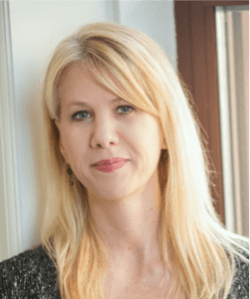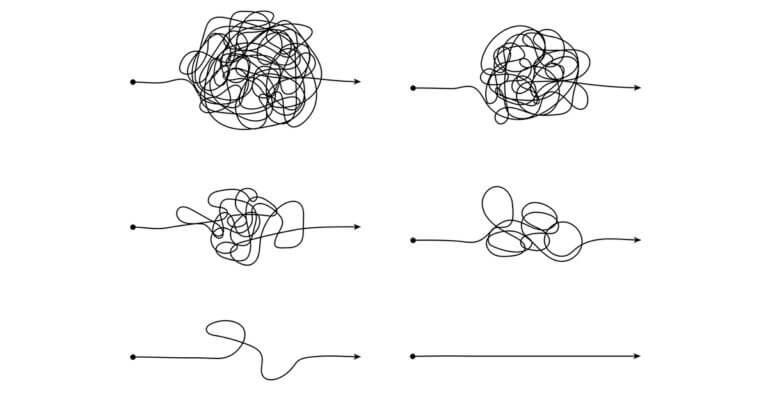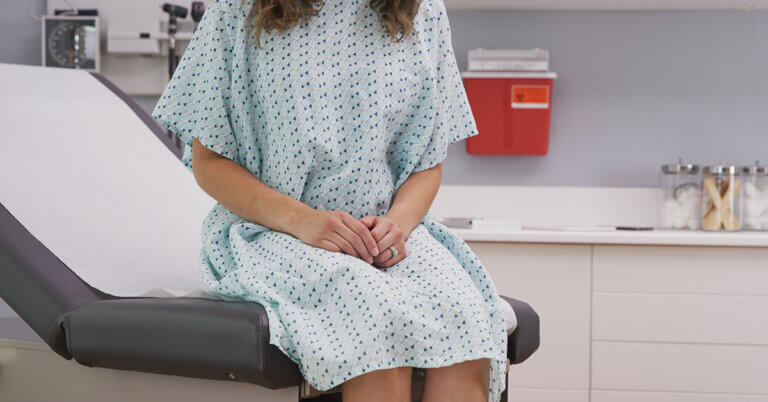May 31, 2017

How Health Systems Get Technology, Innovation and the Patient Wrong
The minute I walked into the new digs of the clinic, I knew it was very different and could get the gist of what they were trying to do. It felt very space age, very Jetsons.
Patients were greeted Apple style, by mostly young concierge types standing around at the ready with devices in hand to check you in. This seemed fine and I was intrigued and certainly willing to continue with the adventure. I didn’t realize how quickly I would slip down the rabbit hole.
I sat in the contemporarily decorated waiting area of the cancer center for over an hour past my scheduled appointment time. During this time, my fear and anxiety rose as the moments passed.
I was surrounded by other cancer patients who were in various stages of their disease. I could not help but overhear many of them talking to one another about their diagnosis, treatment(s), fears and frustrations. While this is what I should expect to hear in a cancer center waiting area, it turned out to be an undeniable reminder that I too, as a newly diagnosed cancer patient, belonged here. It made me very anxious.
I finally walked up to one of the smartly dressed young’uns at the ready to find out when I could expect to see the doctor. She told me it would be an additional 20 minutes so I went outside to put more money in the parking meter then headed back in.
When I was finally called back, I didn’t see my oncologist but instead saw a nurse practitioner who informed me that I had a lab appointment an hour earlier that no one told me about. In fact, I was supposed to have those labs drawn before I saw her. I told her that certainly was unfortunate because God knows, I could have made better use of my time while I was waiting.
She also inadvertently revealed things about my diagnosis that hadn’t been shared with me prior. I knew the diagnosis she relayed would lead to additional testing and a more intense life-long follow up treatment. Bummer. She seemed to have little understanding of how devastating this was to me.
She then escorted me to “Pod 3” where she said someone would help me shortly with the labs and additional imaging. I reminded her that I had to leave within 30 minutes and she assured me it would be no problem.
I waited at the pod for 20 minutes and nothing happened. I went back out to another hospitality hub to ask what was supposed to happen at pod 3. By this point, I won’t lie, I was wishing the bubbly lass had been holding a tray of martinis. She smiled as she told me I was actually supposed be at the lab on the first floor.
I made made my way down to the lab where I was greeted by more smiling hospitality bots. When I told them I was there for labs, they looked on their technology devices and told me I had been scheduled for an hour prior so now I would have to wait.
I told them I was well aware of the scheduling mishap but could not wait any longer and walked out in tears without the scan or labs. I wanted to scream, “Will someone help me? I’m afraid my cancer has spread!” But, by this point I knew it wouldn’t make any difference. After 3 hours waiting to get lab draws that might indicate a potential recurrence, I left with nothing but wasted time and more fear.
As I headed out the door, I unclipped the GPS tracking device from my shirt and dropped it in the designated receptacle.
No, I did not make that up for effect. They really did give me a GPS device so they could “find me” when it was time for my appointment
Technology for the sake of technology is inefficient and probably a huge waste of money
In an establishment that is clearly focused on being very state of the art, one would expect the technology to actually improve delivery of care. Otherwise, what’s the point?
Instead, I was handed a device and instructed to answer questions such as “Could you be pregnant?” The fact that I was there because I had ovarian cancer made the question almost infuriating and did the opposite of building trust.
I understand that it’s because the system is so gigantic and they see so many patients. But who is that better for? What are we doing? I don’t need a ridiculous giant turbo-boosting-looking device to administer a few cc’s of contrast for my CT to feel like I am getting good care. I need people who at least appear to give a damn about me.
I am very aware of the importance of advancements in technology and how many of those advancements save lives. As a respiratory therapist, I have seen improved technology work with ventilation capabilities, for example, or sepsis detection that makes all the difference in treatment.
But can’t we do a better job of implementing things that improve the process AND make people feel like…..people?
Are those making the decisions on what to implement actually involved in day to day patient care? The evidence would suggest that they are not. I imagine a group of decisions makers in a board room starting a bunch of statements with “Wouldn’t it be cool if….?” while having no clue how those cool ideas would play out.
Just maybe, smaller systems would be better for patients
Dream with me for a moment.
Wouldn’t it be better for patients to be able to talk to their doctor or nurse without being sent to a huge call center? Wouldn’t it be better for their healthcare team to know who they are and why they are there?
I am not saying this would be better for the medical corporations or the drug companies or the insurance companies but I think we need to understand that all of those systems rely on patients and the clinicians those patients choose to be involved in their care.
Why are we moving further away from that rather than trying to move toward it? I know there are financial reasons and system reasons and that it is almost impossible with our current corporate medical culture. Yet, I’m afraid for what the future holds if we continue on this path.
I know more doctors and nurses than I can count who long for more time with their patients and who want to provide comprehensive, personal care. As a patient, I find I am nostalgic for some features of the small rural clinic I went to as a child.
I realize, from working in large world class health systems as well as small rural hospitals, that there are often gaps in innovation in the smaller systems. However, there are advantages in having a team of people managing your care who know who you are and what you are there for. I am beginning to think the latter wins out when it comes to trust in the care that’s being delivered.
As a result of this experience and after much pondering, I sought out a new oncologist to provide my ongoing care and monitoring. She comes highly recommended and is known for being very good but for running behind because she tends to spend more time with patients.
That is just fine by me.
Michelle Chaffee, Founder of alska

Michelle Chaffee is the founder and CEO of alska (www.alska.com), a technology solution and professional patient advocacy service created for patients and caregivers to better manage care and improve outcomes. She has spent over 20 years providing direct patient care in hospitals that include Loma Linda University Medical Center and the University of Minnesota. In addition to time spend as a medical investigator for the attorney general. The technology and service models she developed are utilized by individuals, corporations and healthcare systems to improve patient experience and reduce rebound admissions. She is a passionate advocate for healthcare consumers and writes, speaks and consults on meeting the needs of patients and caregivers.





